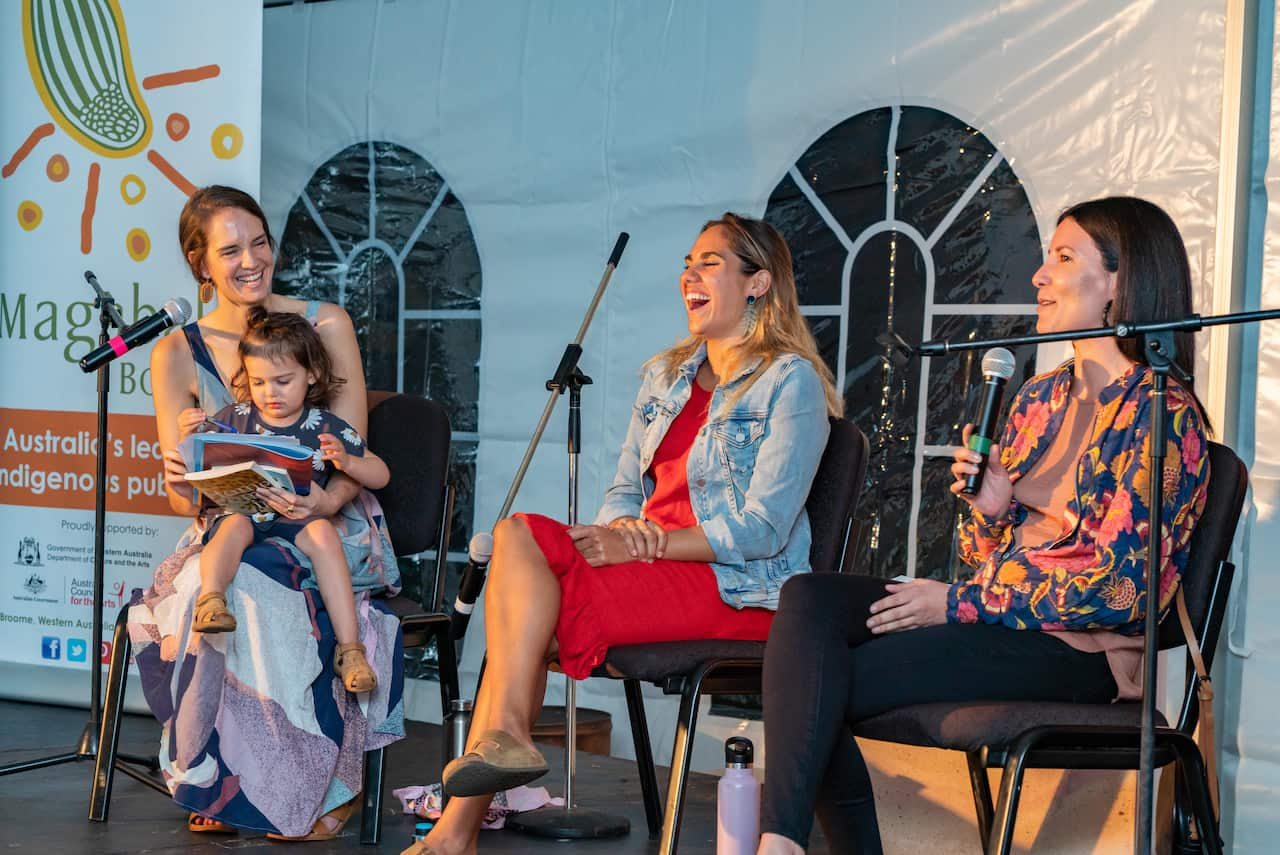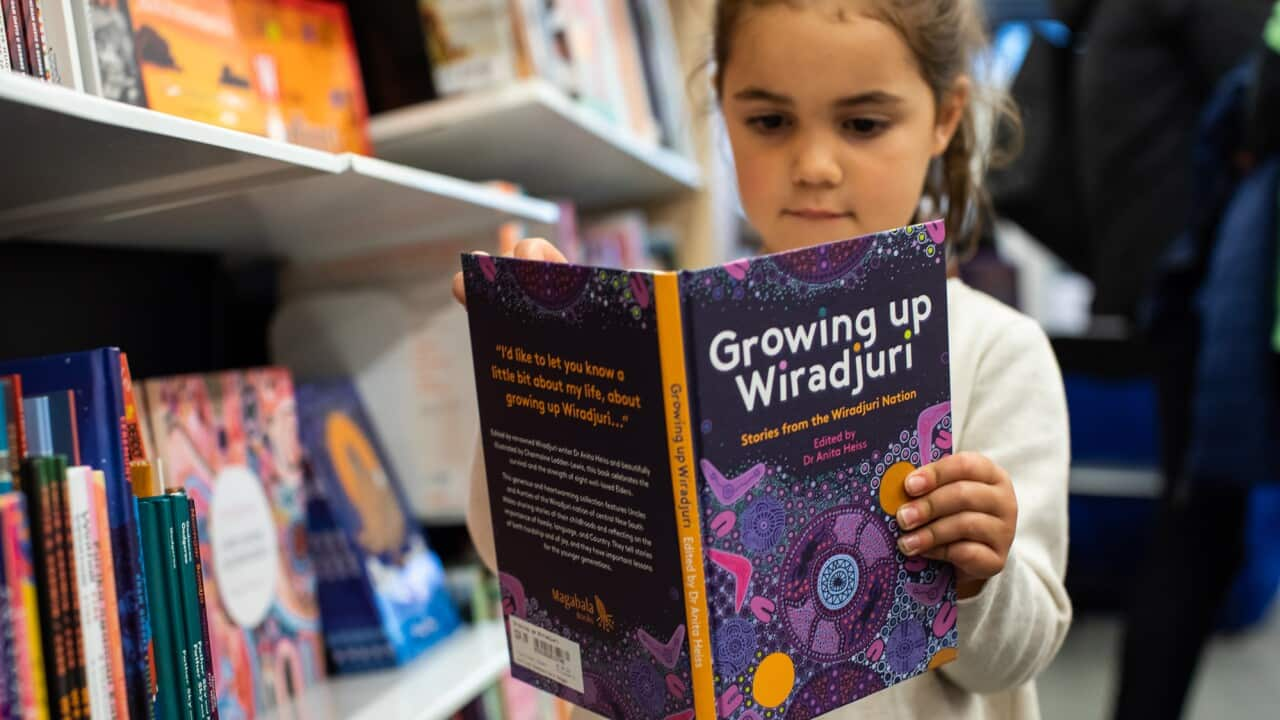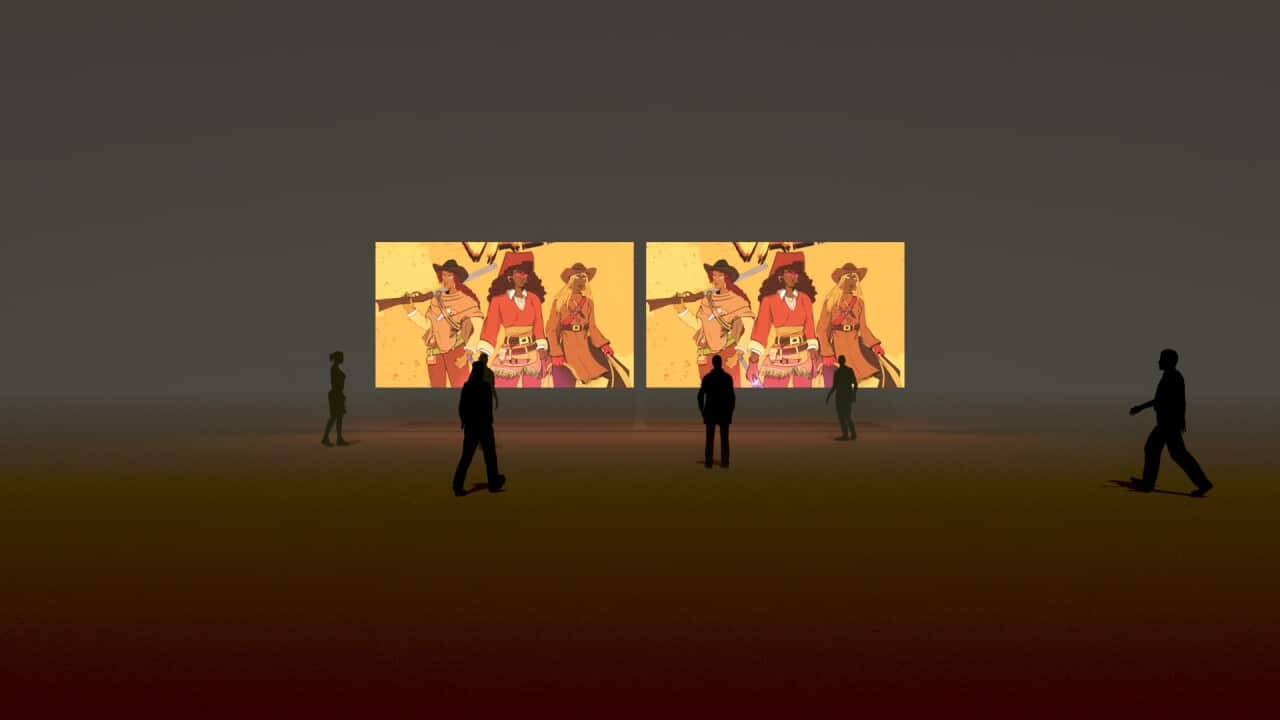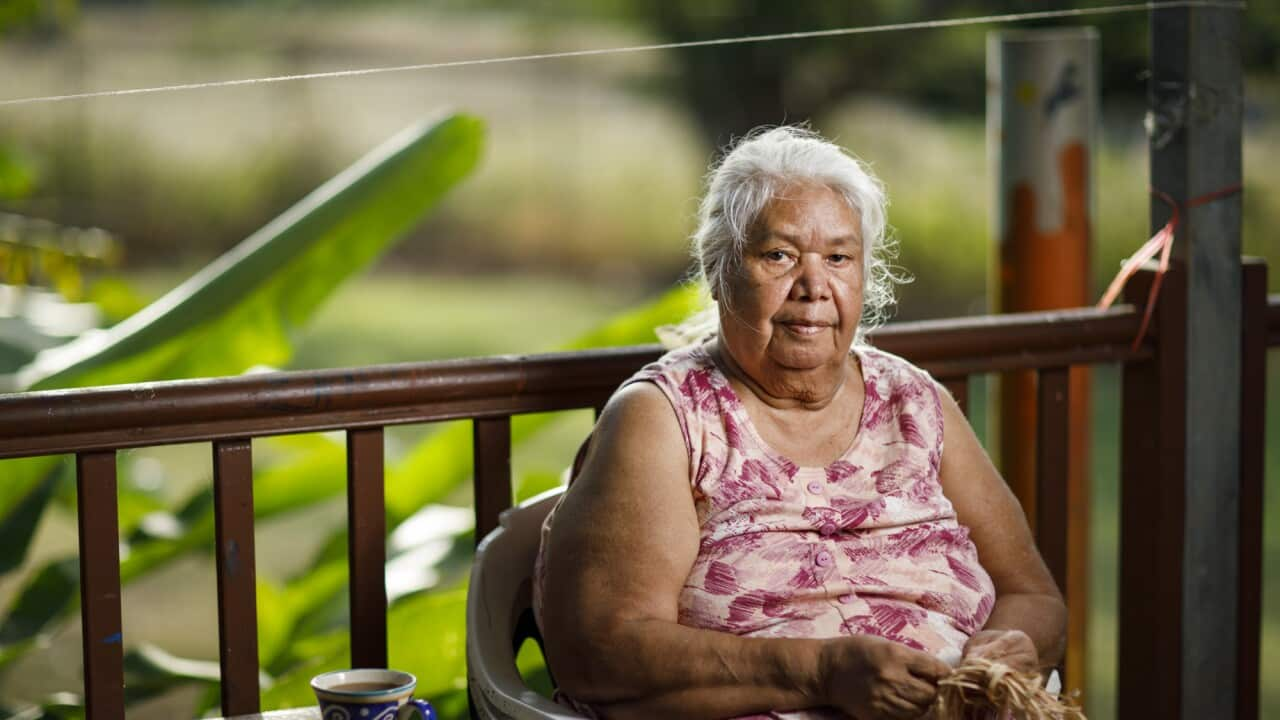If you’re lucky enough, reading evokes a positive feeling.
Perhaps that feeling is connected to the memory of cuddling up next to mum or dad, nan, pop, aunty, uncle and flicking through a picture book before bedtime.
Of course, that’s not the case for everyone and it could be one of the reasons recreational reading habits in Australia are in decline.
Magabala Books is on a mission to change that.
It operates out of a small office in Broome, Western Australia and it’s punching well above its weight in the publishing industry.
With best-selling and award winning titles like Bruce Pascoe’s 'Dark Emu', the children’s version 'Young Dark Emu: A Truer History' and Kirli Saunders’ 'Bindi' in its catalogue, Magabala is the leading Indigenous publishing house in the country.
Magabala’s CEO, Gumbaynggirr woman Dr Lilly Brown, says while state and federal governments continue to focus on policies determined by increasing literacy levels, Magabala is more concerned with encouraging joy in the act of reading.
The report found those who were identified as 'uninterested non-readers' felt mostly negative towards reading, could not recall any positive experiences of reading in the past and were less likely to be engaged currently in reading.
“I think if we can encourage First Nations parents and carers to use books as tools to connect ... it’s more likely that those little people grow up into adults who enjoy reading,” Brown told NITV.

Dr Lilly Brown is Chief Executive Officer at Magabala Books. Source: Supplied / Magabala Books
“How do we encourage Aboriginal carers and parents to pick up a book, even if they’re not confident reading, even if they don’t have the resources to access books?
"Because books sometimes cost money, you’ve got to have a car to get to the library,” she says.
“How do we make sure there are books in people's homes? So that parents can pick up a book and it doesn’t have to be about reading the words, it can just be cuddling your child and showing them the pictures.”
Despite the decline in recreational reading rates in Australia, Magabala Books has seen growth when it comes to sales, especially of their children’s titles.
Brown says there is an appetite for First Nations stories not just because they’re good stories, but because she says, “they have the potential to change hearts and minds and create empathy.”
“[These stories] connect young people to this continent and this country,” she says.
“Every time you pick up a Black book you’re opening up a window into thousands of generations of connection to this place.
"So it just makes sense that educators and carers are seeing books by First Nations creators and thinking, ‘Oh this is the kind of story that I want my kid to access.'"

Source: Supplied / Magabala Books
“This kind of proliferation of First Nations stories and particularly First Nations stories that are aimed at children and First Nations children, means that their lives are validated,” says Brown.
“The diversity of who they are is reflected and it means then that they don’t just have access to negative representations of what it means to be a First Nations person, but they have access to representations that affirm who they are and the brilliance of their community which is one of the most important things of being human, being affirmed by the society and the people that you have around you.”
Brown says Magabala has a special role to play in ensuring First Nations stories continue to be told and amplified through supporting storytellers, aspiring authors and creators.
This is done through Magabala’s various scholarship and mentorship programs, each tailored to the specific needs and aspirations of the creator and all of which are funded through donations.
“We’re actively trying to fundraise for philanthropy and family donations and individual donors, so that we can provide those opportunities for black creators.
“We are a culturally safe publishing house, the way that we work with people even through our scholarship opportunities, is to ensure that they feel held and valued and they understand that we’re supporting them with financial resources or other kinds of things, but that we’re investing in them in the long term,” says Brown.
“They might not publish with us, [but] we’re so happy when we see someone we’ve supported go publish with someone else, because we have too many stories as a community, like we’re ridiculously creative.”
Brown says although Magabala currently only has the capacity to publish around 20 books a year, as an Aboriginal organisation its support of First Nations storytellers and creators remains a central aspect of its mission
“If we continue to support creators to continue their craft, and we can support creators to feel empowered to take their manuscript to another publishing house, then we’re doing our job,” says Brown.
“Yes, we publish books as our core business but we want to be building a thriving literary community, and a creative community of First Nations people who feel that they can tell their stories.”




